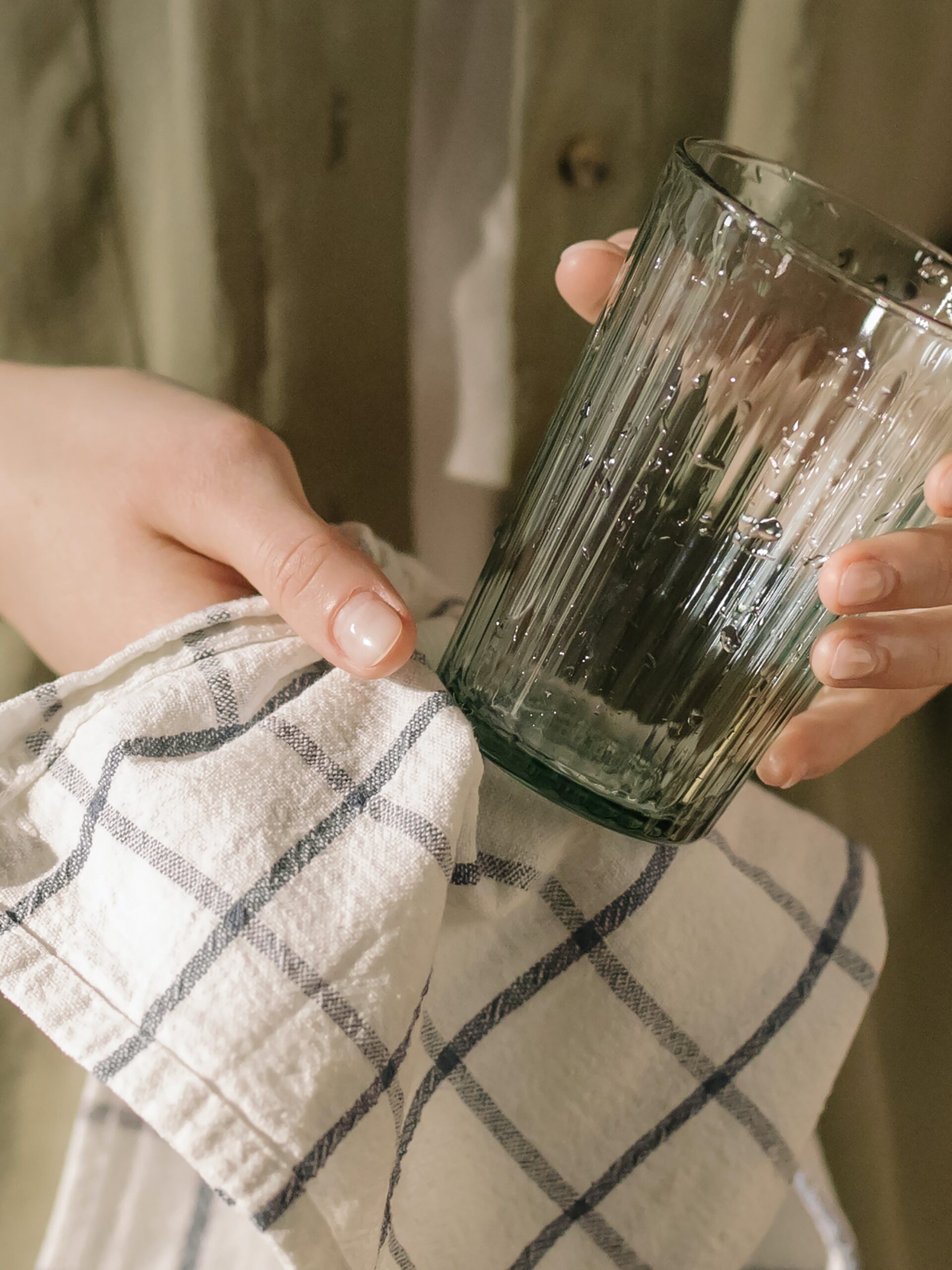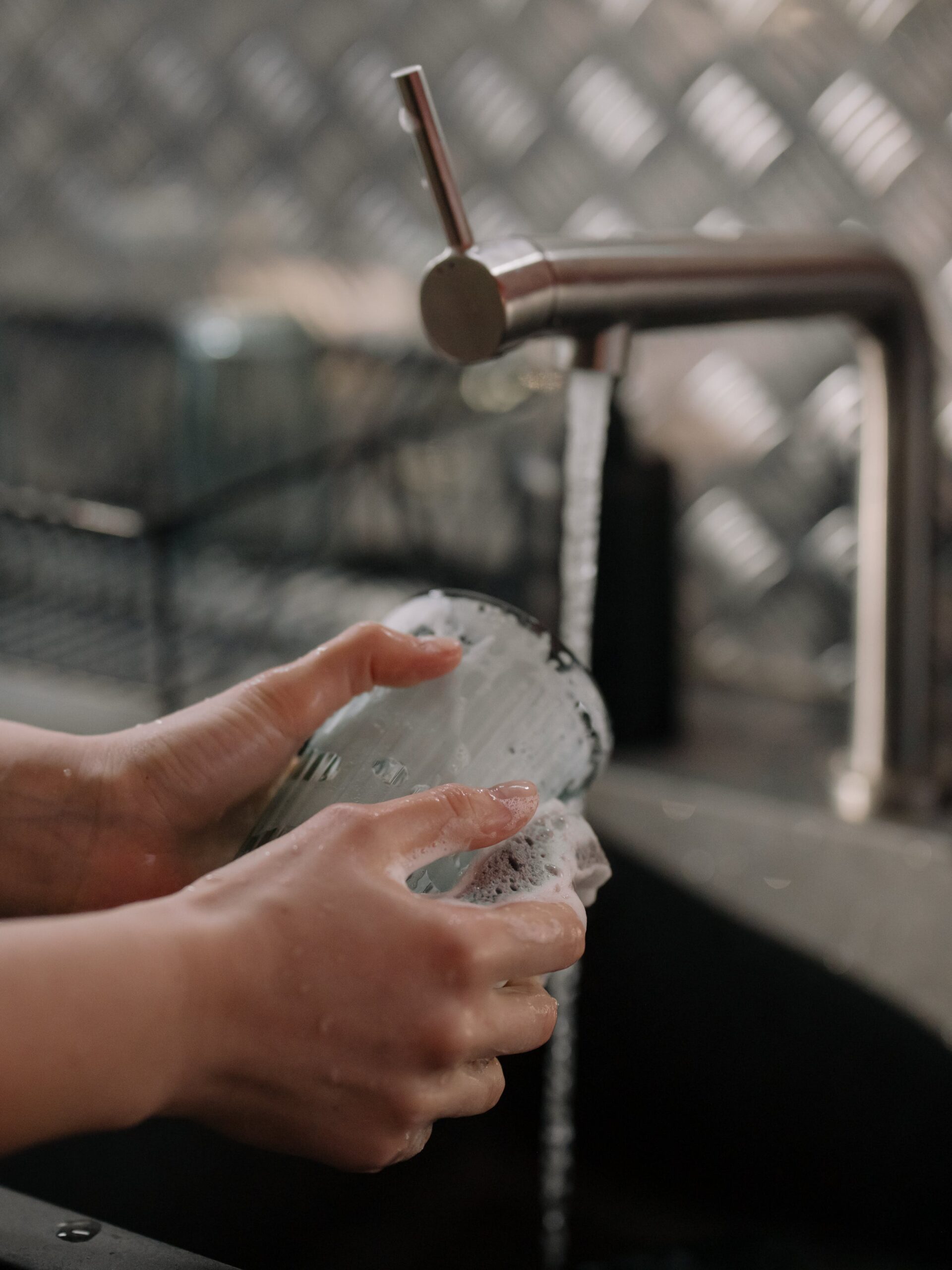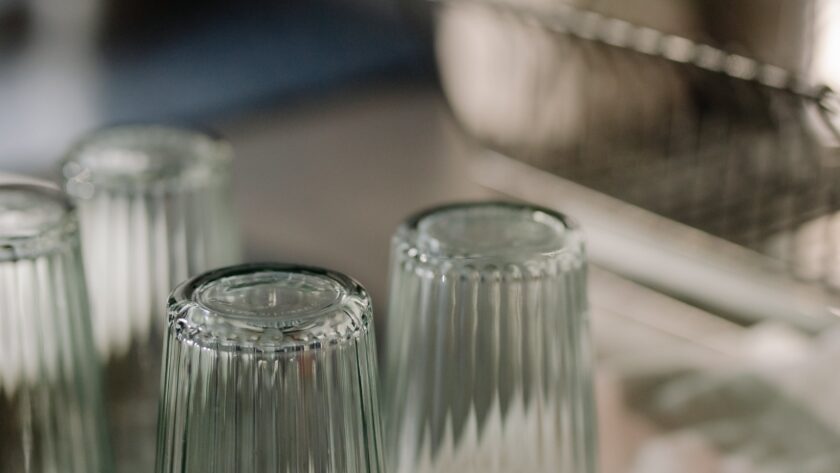The dishwashers are the biggest helpers in Old North Sacramento when it comes to cleaning up. It only takes a few hours for your plates, glasses, and silverware to be spotlessly clean. Although dishwashers can easily remove stains, it’s sad that so many of them produce foggy glasses. In comparison to hand washing dishes, using a dishwasher has this drawback. Using the dishwasher also results in rusted cutlery, which is an annoying fact. Consequently, your once spotless glassware now looks worn and worn out. Fortunately, there are steps you can take to restore your drinking glasses to their former crystal clarity. In this section, we’ll explain where this stuff comes from, how to get rid of it, and how to prevent it from returning.
Find out how to clean hazy glasses below.
How did the glass become hazy?
Ultimately, hard water leaves minerals behind that make your glasses hazy, mainly because it is washed in it. Hard water is water that contains calcium and magnesium combined in limescale, which appears as tiny white spots or as a milky film on the glass surface. Your dishwasher’s hard water issue can get worse with each cycle because more minerals are deposited there. Thus, cities and places with hard water are most likely to suffer from this problem. Moreover, it explains why you should occasionally clean your dishwasher or hire a house cleaning service from Los Angeles to do it for you.
Nevertheless, just because you use soft water doesn’t imply you’re safe from harm. Because soft water lacks the minerals found in hard water, it is really corrosive and will scratch and etch glass considerably more quickly, resulting in permanent damage. Understanding the distinctions between these issues and being able to identify which is which will assist you in deciding on the best course of action.
How To Clean Hazy Glasses
Take these steps if you’re struggling with hazy glasses caused by hard water:
- Check the situation you’re in. Make sure you’re dealing with mineral deposits from hard water by first checking what you’re working with. Try rubbing the stain away by wetting a clean microfiber cloth with white distilled vinegar. You can carry on using this technique if it starts to fade. If not, continue to the last sentence in this section.
- Soak Glasses. You’ll need a lot of white distilled vinegar for this procedure, so make sure you stock up. Soak your glasses. Make sure the glasses are thoroughly submerged in a washing-up bowl filled with warm vinegar for 10 minutes to maximize their effectiveness. Alternately, if you’re only deep cleaning one or two glasses, you may soak a few microfiber towels in the vinegar and wrap them around the glass to soak. This will save you money on vinegar!

- Clean up the residue. Remove the residue by using a non-scratching scrubber when the allotted time has passed. For this, a silicone sponge works well. The hazy deposit should be simple to remove through deep cleaning. If it doesn’t, give your glasses another five minutes to soak.
- Rinse the vinegar. Once the limescale has been removed from your glasses, you may wash the vinegar away with warm, soapy water.
- Dry and Keep. Dry them carefully with a microfiber cloth, then take some time to appreciate your spectacles before putting them away.
If the abovementioned seems like too much work, you may purchase a special detergent designed to get rid of the film in your dishwasher or just call a professional cleaners to do the job
After attempting the aforementioned technique, if your glasses still appear marked, they might actually be scratched as opposed to hazy. It won’t be possible to remove this, whether the cause was excessive exposure to soft water or just general wear and tear. If there are any leftover drinking glasses, recycle them or just use them alone when no one else is around. Of course, broken or cracked glass needs to be thrown away.
How To Avoid Getting Hazy Glasses Again
While scratched glass cannot be repaired, there are behaviors you may modify over time to avoid both limescale and etching:
If you have a lot of limescale buildup, make sure the salt levels in your dishwasher are replenished because this helps to soften the water.

Additionally, make sure your rinse aid is always full. The minerals won’t dry on top as quickly because of this, which essentially helps the water rinse off at the end of the cycle.
Instead, try handwashing for the finest care. This is because it is usually softer on glassware, so there won’t be as many scratches and cloudy residue.
If your water is generally too hard, invest in a water softener system. However, take care not to set it too softly, as this will make the water corrosive.
By lowering the temperature of your dishwasher cycle, you can lessen the impact of limescale because it forms more quickly in hot water. Pre-rinsing should be avoided at all costs; therefore, adhere to the glassware cycle and just put the glass through what is necessary.
Use the right amount of detergent; using too much can result in residue.
Conclusion
Once you’ve restored the luster of all your foggy glassware, you might find it helpful to continue with routine care to slow down the rate at which your glassware ages. Doing so will lessen the amount of cloudiness and help keep dullness from accumulating. However, it may take up some of your time during your regular deep cleaning schedule. For your convenience, you can ask professional house cleaners in Old North Sacramento to do the job regularly.
FAQs
1. Why do glasses in a cabinet become cloudy?
Although cloudy glass and its unwelcome fogginess are annoying, did you know there could be a variety of causes for cloudiness in the cupboard? Dust and small smoke particles from kitchen cooking can leave deposits on your glassware. It might also be brought on by a phenomenon known as “crizzling,” in which hard water deposits such as minerals leave behind an alkali that causes hazy glassware.
2. How should a hazy glass tabletop be cleaned?
To understand how to clean a hazy glass tabletop, follow a few simple steps. Make a DIY cleaning solution first. One cup of warm water, one cup of rubbing alcohol, and one tablespoon of white vinegar are our suggested mixtures. Fill a spray bottle with this mixture, then liberally spray your glass tabletop with it. Finally, clean the surface with a soft cloth, such as a microfiber cloth.



